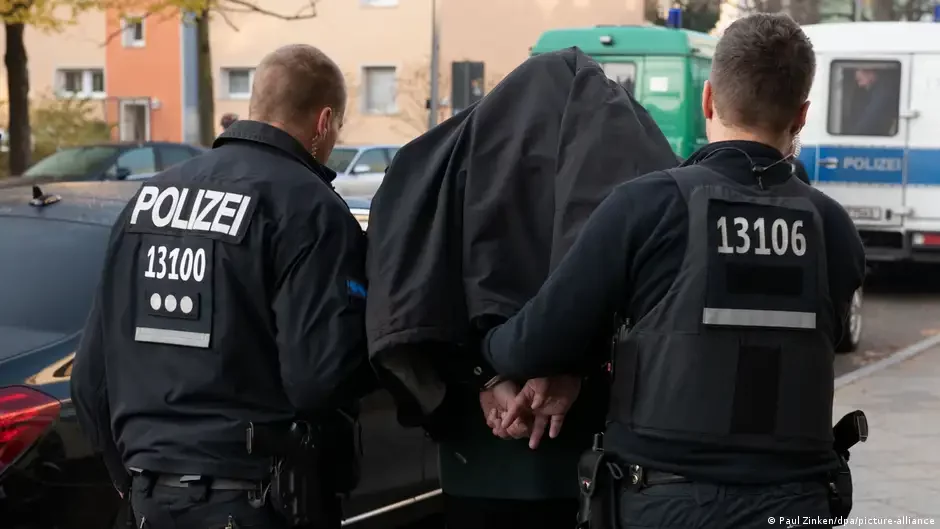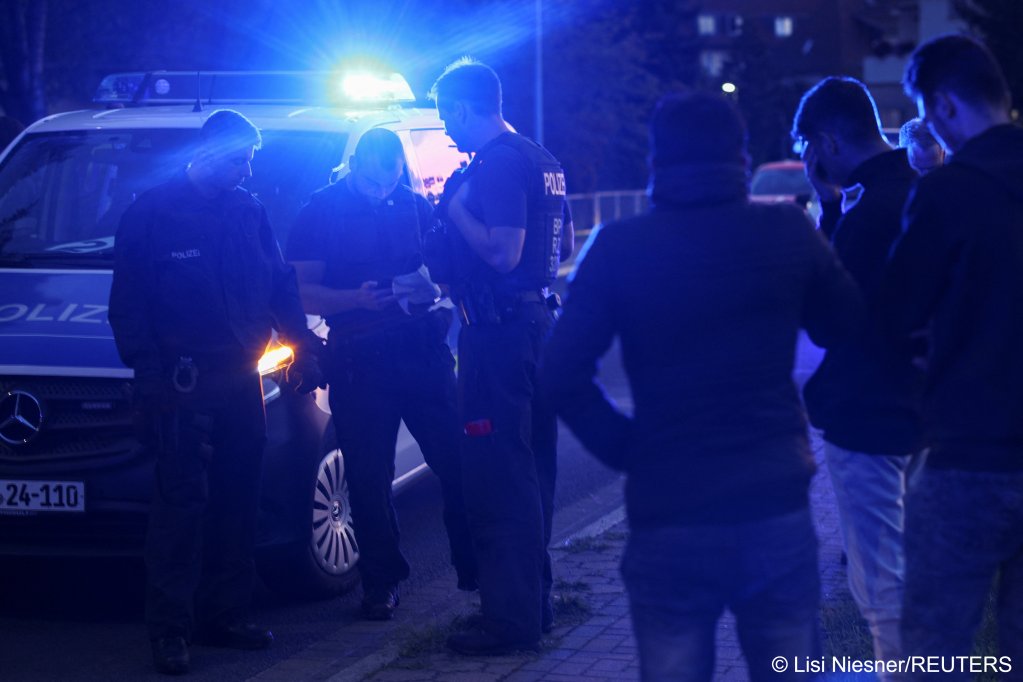Researchers accompanied police in Lower Saxony to observe how discrimination may be embedded in police work processes.
A study found that everyday German police practices foster systemic discrimination through routine racial profiling and reliance on ethnic stereotypes.
Mediendienst Integration (Media Service Integration), a Berlin-based think tank that provides data and analysis on immigration and social issues, released the study on Monday, September 9.
For over a year, Astrid Jacobsen and Jens Bergmann, both professors at the Lower Saxony Police Academy, accompanied the Lower Saxony (northwestern Germany) police and observed their everyday routines and procedures to assess the risks of discrimination in police work.
Jacobsen and Bergmann went on patrol with the officers to study how investigations were carried out, how evidence was secured, and how interrogations were conducted.
The research stressed that the study did not focus on individual attitudes or behaviors of police officers related to factors such as overwork or fear but on police practices. These work processes, which include everyday work habits, routines, and procedures, were examined to assess the potentially increased risk of discrimination against certain groups.
The work processes of the operational and patrol police, criminal investigation unit, and riot police were evaluated in the study.
In an email, Jacobsen discussed five aspects of work processes that increase racist discrimination which are detailed in the report with InfoMigrants.
Also read: Germany: Crime statistics and migration
Random checks
The study on random checks reveals that certain groups are more frequently checked based on police experience and available information in situational reports prepared by the police.
For example, Albanians are noted for increased checks related to drug offenses.

Jacobsen explained that the Albanians in the context of drug-related offenses were a singular example. "The affected groups (subjected to higher scrutiny) differ in the context of specific offences. For example, women as victims of sexual assaults, people with communication problems in police inquiries/questionings because of language skills, or physical or psychic limitations."
Hazard assessments
Before operations, the police collect information about the location, reason, and people involved in the situation or suspected of a crime.

Along with the use of objective descriptions such as "armed" to identify a suspect, the study found that the police also make broad generalizations, such as describing Southern Europeans as "impulsive" and Russians as "violent".
These stereotypes lead to assigning certain groups as having higher risk assessments and more discriminatory outcomes such as restricted freedom and questioning of their credibility, regardless of their actual behavior.
Contact design
The research team found that police often view certain groups—such as young men, politically left-wing individuals, and those perceived as Arab or Turkish—as hostile and disrespectful. This leads to a display of power over these groups. Discrimination was seen in reduced willingness to communicate or in impatient, strict behavior and disapproving, rejecting comments.
Moral value judgments
Police frequently make moral judgments that link ethnic categories to discriminatory practices. These judgments not only constitute discriminatory statements but also influence the allocation of resources to these groups.
An example cited in the report is one rape case discussed during the regular police meeting. The case involved a complaint where the wife was allegedly assaulted by her husband. The meeting head mentions the names of both parties but struggles to pronounce them, noting that they are from India. He then comments, "Well, let's see what comes of it. You don't know what they're used to."
Such remarks can influence the investigation process, impacting the perceived credibility of the complainant and accused and the level of effort that will be put into the investigation said Jacobsen.
Cutting off non-German speakers
Police often cut interviews short due to communication difficulties, such as language barriers or differing understandings. This lack of effort to facilitate proper communication impacts individuals who do not speak German fluently.
Jacobsen stated that the recommendations will be developed in collaboration with police experts and that their presentation to the police and subsequent reactions are yet to be detailed.
